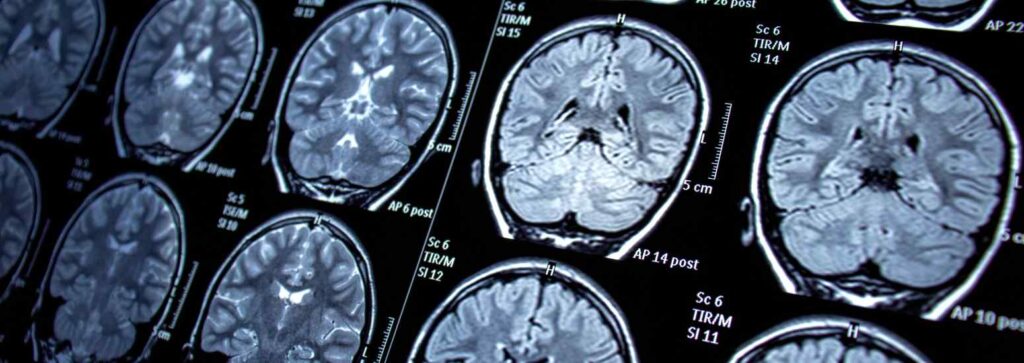Neurological diseases/conditions encompass a broad range of disorders that affect the brain, spinal cord, and peripheral nerves. These conditions can impact various functions, including movement, cognition, sensation, and behavior.
Understanding Neurological Diseases and Their Symptoms
These can vary widely, from memory loss and seizures to paralysis and chronic pain. The causes of neurological diseases can be genetic, infectious, autoimmune, or the result of environmental factors.
Early diagnosis and comprehensive management are crucial for improving patient outcomes and quality of life, often involving a multidisciplinary approach that includes medical treatment, rehabilitation, and support services.
Neurological conditions encompass a wide range of disorders that affect the nervous system, which includes the brain, spinal cord, and peripheral nerves.

Common Symptoms of Neurological Diseases
Here are some common neurological conditions:
1. Alzheimer’s Disease
- A progressive neurodegenerative disorder characterized by memory loss, cognitive decline, and behavioral changes.
2. Parkinson’s Disease
- A movement disorder caused by the degeneration of dopamine-producing neurons in the brain, leading to tremors, rigidity, and impaired movement.
3. Multiple Sclerosis (MS)
- An autoimmune disease where the immune system attacks the myelin sheath of nerve fibers, resulting in symptoms like fatigue, mobility issues, and cognitive changes.
4. Epilepsy
- A chronic disorder characterized by recurrent seizures due to abnormal electrical activity in the brain.
5. Stroke
- A medical emergency is caused by the interruption of blood flow to the brain, resulting in brain cell damage. Symptoms can include sudden weakness, difficulty speaking, and loss of coordination.
6. Migraine
- A neurological condition characterized by recurrent, severe headaches often accompanied by nausea, vomiting, and sensitivity to light and sound.
7. Neuropathy
- A condition resulting from damage to the peripheral nerves, causing pain, tingling, and numbness, often associated with diabetes or other underlying health issues.
8. Amyotrophic Lateral Sclerosis (ALS)
- A progressive neurodegenerative disease that affects motor neurons in the brain and spinal cord, leading to muscle weakness and atrophy.
9. Huntington’s Disease
- A hereditary neurodegenerative disorder characterized by motor dysfunction, cognitive decline, and psychiatric symptoms, typically beginning in mid-adulthood.
10. Traumatic Brain Injury (TBI)
- An injury to the brain caused by external force, resulting in temporary or permanent impairments in cognitive, physical, and emotional functioning. Preventing Neurological Diseases: Essential Steps for a Healthy Brain
Neurological conditions can vary widely in symptoms, severity, and treatment options. Early diagnosis and comprehensive management are crucial for improving outcomes and enhancing the quality of life for individuals affected by these disorders. A multidisciplinary approach, including medical treatment, rehabilitation, and support services, is often necessary for effective care.
Preventing Neurological Diseases: Essential Steps for a Healthy Brain
Preventing Neurological Diseases involves a combination of lifestyle choices, early intervention, and regular health monitoring.

Here are essential steps to help reduce the risk:
1. Maintain a Healthy Diet
- Focus on Nutrition: Consume a balanced diet rich in fruits, vegetables, whole grains, lean proteins, and healthy fats. Foods high in antioxidants, omega-3 fatty acids, and vitamins can support brain health.
2. Engage in Regular Exercise – Physical Activity
- Physical Activity: Aim for at least 150 minutes of moderate aerobic exercise per week. Physical activity improves blood flow to the brain, enhances cognitive function, and can reduce the risk of neurodegenerative diseases.
3. Stay Mentally Active – Avoid Depression
- Cognitive Engagement: Challenge your brain with puzzles, reading, learning new skills, or playing musical instruments. Lifelong learning helps build cognitive reserve, which can protect against cognitive decline.
4. Prioritize Sleep
- Quality Rest: Aim for 7-9 hours of quality sleep per night. Good sleep hygiene can improve memory consolidation and overall brain health.
5. Manage Stress
- Stress Reduction Techniques: Practice mindfulness, meditation, or yoga to manage stress effectively. Chronic stress can negatively impact brain health and increase the risk of neurological disorders.
6. Avoid Smoking and Limit Alcohol
- Substance Use: Avoid tobacco and limit alcohol consumption. Both can contribute to cognitive decline and increase the risk of stroke and other neurological conditions.
7. Protect Your Head – Brain Health
- Safety Measures: Wear helmets during activities like biking or skiing, and use seat belts in vehicles to reduce the risk of traumatic brain injuries.
8. Regular Health Check-ups – Professional Guidance
- Preventive Care: Regular visits to healthcare providers can help monitor and manage conditions like hypertension, diabetes, and high cholesterol, which are linked to neurological health.
9. Stay Socially Connected
- Social Engagement: Maintain strong social connections and participate in community activities. Social interaction can enhance emotional well-being and cognitive function.
Implementing these essential steps can significantly reduce the risk of developing neurological diseases and promote overall brain health.
Conclusion: Early Diagnosis and Professional Health Monitoring for Prevention
Preventing neurological diseases involves a proactive approach that includes maintaining a healthy lifestyle, managing stress, and engaging in regular mental and physical activities. Early intervention and regular health check-ups are vital for monitoring and promoting long-term brain health.



